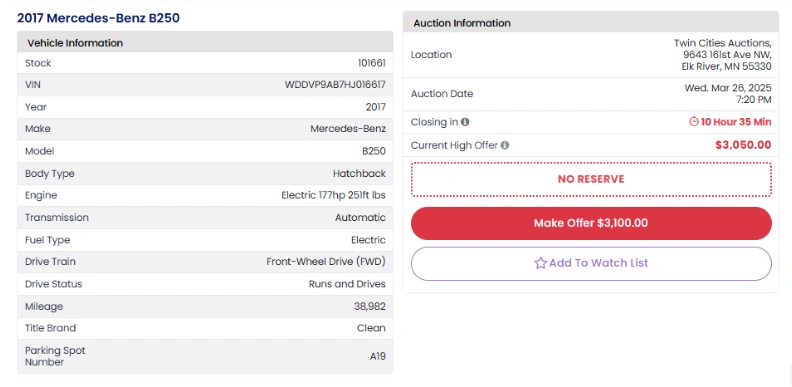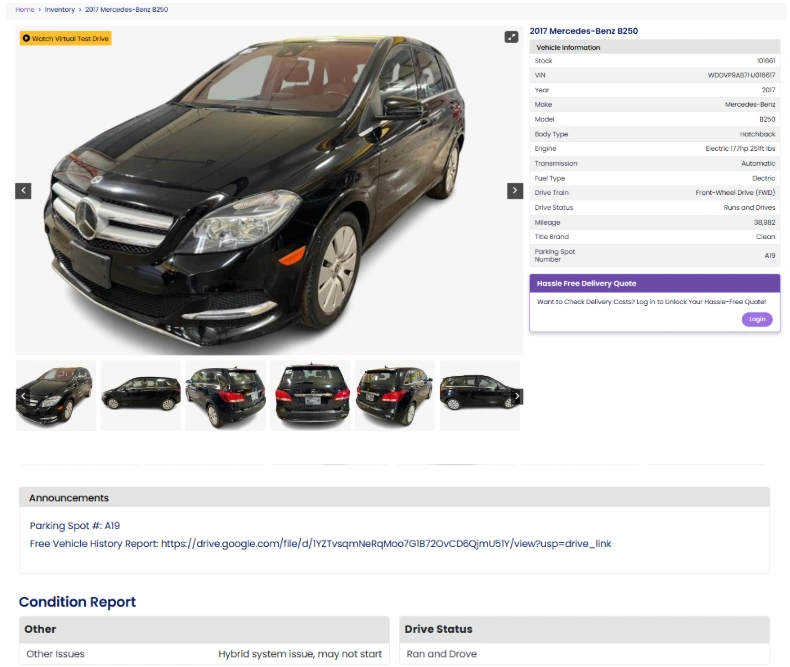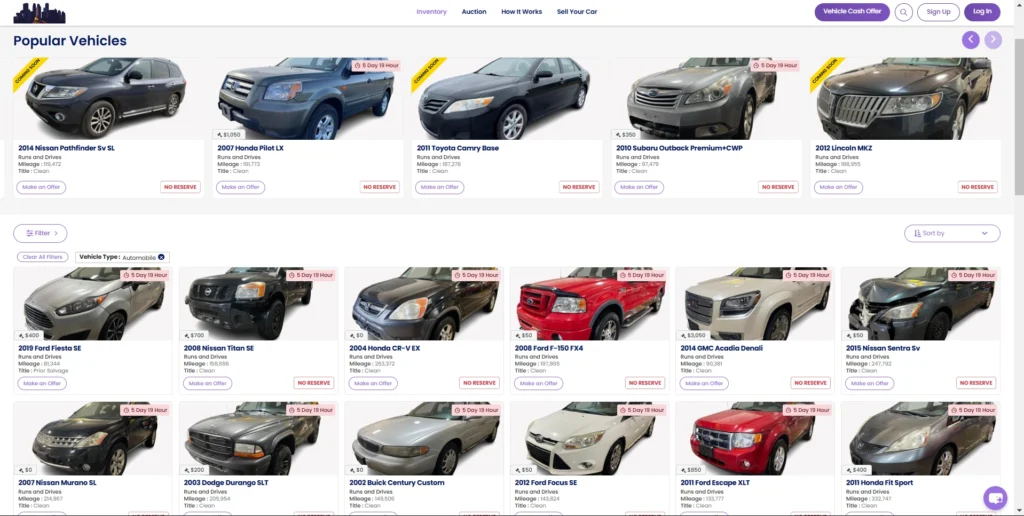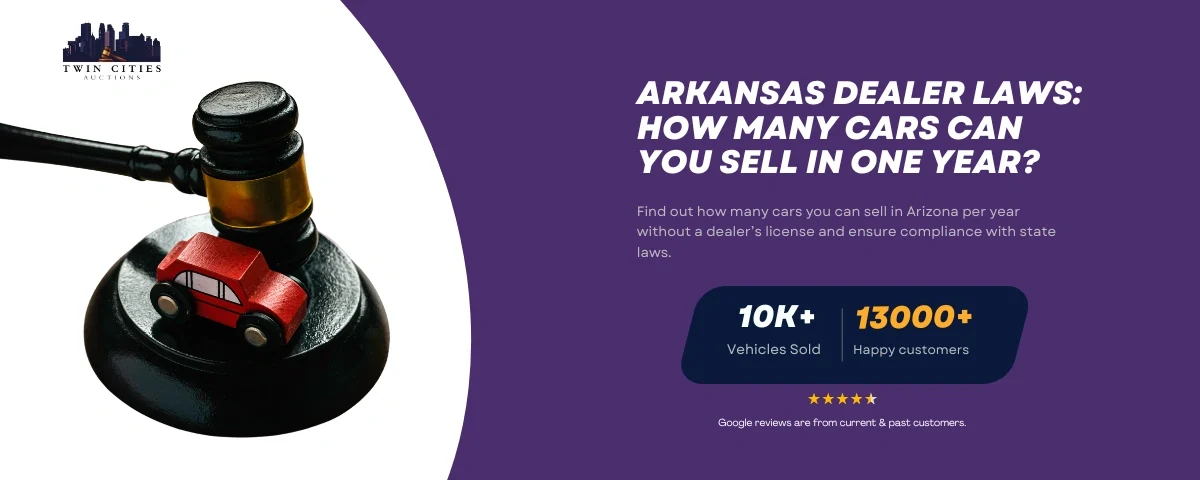The world of car sales in Arkansas is filled with opportunities, detailed regulations, and practical guidelines for individuals and businesses alike.
Imagine wondering if selling your extra vehicles or starting a small dealership could become a lucrative side hustle. Arkansas Dealer Laws have clear-cut rules that help maintain transparency in the market.
According to the state regulations, an individual can sell up to five vehicles in one year without a dealer license. Exceeding that number requires you to obtain a dealer license, ensuring that all sales meet established safety and business standards.

Key Takeaways
- Arkansas law allows the sale of up to five vehicles per year by an individual without needing a dealer license.
- Exceeding five sales in a 12-month period requires obtaining a dealer license.
- Dealer licensing involves additional requirements and fees to ensure a regulated market.
- Detailed tables and comparisons in this blog provide clarity on dealer licensing and sales scenarios.
Understanding Arkansas Dealer Laws
Arkansas Dealer Laws are designed to protect both buyers and sellers by promoting fair and transparent practices in the automotive market. The Office of Motor Vehicle in the State of Arkansas plays a central role in overseeing these regulations and issuing dealer licenses.
Anyone selling more than five vehicles within a 12-month period is required to obtain a dealer license. This process ensures that individuals and businesses meet specific criteria related to record keeping, business location, and ethical practices.
Applying for a dealer license through the Arkansas DMV involves completing detailed forms, paying applicable fees, and in some cases, undergoing background checks.
These requirements are not just about compliance; they’re also intended to build consumer trust and promote responsible vehicle sales throughout the state.
Permissible Sales Without a License
For casual sellers and private individuals, Arkansas offers a provision to sell up to five vehicles per year without needing to obtain a dealer license.
This rule allows individuals who are not in the business of selling cars to dispose of their extra vehicles without facing stringent regulatory hurdles.
The limitation is in place to discourage business-like practices by private individuals while still offering flexibility for personal vehicle transactions.
This threshold is intended to protect consumers from potential scams or unregulated business practices. When sellers operate within the legal boundaries, buyers can have increased confidence in the transaction process.
The law also ensures that casual sales do not disrupt the market dynamics maintained by licensed dealers.
The Rationale Behind the Five-Car Rule
State lawmakers have established the five-car rule as a balanced approach to manage the private sale market while controlling unregulated commercial practices. This limit protects consumers and maintains a level playing field for professional dealers.
It is designed to minimize the potential for fraudulent transactions and ensure that every sale meets specific legal standards.
Arkansas Dealer Laws are continuously updated based on market trends and consumer feedback. These revisions help maintain market integrity and provide clarity for both sellers and buyers.
Understanding these rules can be instrumental in planning your sales strategy, whether you are selling a few vehicles or planning to scale up operations.
Exploring the Benefits of Dealer Licensing
Advantages of Operating as a Licensed Dealer
Operating as a licensed dealer in Arkansas offers several benefits over staying within the limits of private sales. Licensed dealers enjoy enhanced credibility, easier access to wholesale auctions, and the ability to purchase vehicles at discounted rates.
With a dealer license, you gain the trust of your customers and create a professional reputation that can help in building long-term business relationships.
Licensed dealers are also often given priority in terms of regulatory considerations and can avail themselves of certain tax benefits. The investment in obtaining a license is offset by the increased volume of sales and the added layers of protection and trust that come with being a certified dealer.
Being a licensed dealer means your business practices are regularly monitored and audited, ensuring compliance with industry standards. This monitoring fosters a more secure environment for both the seller and the buyer.
It also establishes a professional network where dealerships can collaborate, share resources, and access market insights that drive growth.
Challenges and Considerations in Dealer Licensing
The process of obtaining a dealer license is rigorous and requires careful planning. The application process involves background checks, location inspections, and proof of financial stability.
While these requirements may seem challenging, they are intended to ensure that only qualified individuals operate in the vehicle sales market.
Costs associated with licensing include application fees, renewal fees, and expenses related to maintaining a licensed location. Although these costs can add up, the benefits of operating as a licensed dealer often outweigh the initial investment.
Dealers have access to more significant market opportunities, including partnerships with other businesses and access to exclusive auctions.
Understanding both the advantages and the challenges of dealer licensing is critical. This balanced perspective helps potential sellers decide whether to remain within the private sale limit or to pursue a full-fledged dealer license. The decision should be based on your long-term business goals and the volume of vehicles you plan to sell.
Why Auctions Are a Smart Choice for Vehicle Sales
Selling cars at an auction for resale is becoming an increasingly popular option for dealers and private sellers alike. Auctions, like Twin Cities Auctions, offer a streamlined and competitive way to buy and sell cars.
Advantages of Using Twin Cities Auctions
- Competitive Pricing: Auctions like Twin Cities Auctions allow sellers to set a competitive price and reach a broad pool of buyers.

- Transparency: Every vehicle listed at the auction comes with detailed information, making the buying process transparent for both parties.

- Wide Inventory: Auctions have a large variety of vehicles available

- Quick Turnaround: Auctions offer fast and efficient sales, helping sellers move inventory quickly.
Why Choose Twin Cities Auctions
| Feature | Twin Cities Auctions | Traditional Dealerships |
| Pricing | Competitive auction prices for both buyers and sellers | Fixed pricing, higher costs |
| Transparency | Detailed vehicle history and condition reports available | Varies by dealership |
| Convenience | Fast and efficient transactions | Longer sales cycles |
| Audience Reach | National and local buyers | Limited to local customers |
How the Auction Process Works
The auction process at Twin Cities Auctions is straightforward and user-friendly:
- Registration: Buyers register on the Twin Cities Auctions website.
- Vehicle Review: Detailed descriptions and histories of each vehicle are available for review.
- Bidding: Buyers participate in an open and competitive bidding process.
- Finalization: The highest bidder secures the vehicle and completes the purchase through a secure process.
This method not only promotes transparency but also provides opportunities for better pricing and quicker sales.
Benefits for Sellers on the Auction Platform
Sellers using Twin Cities Auctions enjoy numerous advantages:
- Wider Audience Reach: Access to a broad network of potential buyers.
- Faster Turnaround: The auction format typically results in quicker sales.
- Competitive Bidding: The transparent bidding process can drive up the final sale price.
The platform’s design helps ensure that both buyers and sellers benefit from a fair, efficient, and engaging transaction process.
Practical Tips for Sellers and Dealers
Whether you are a private seller or an established dealer, here are some tips to help you stay compliant with Arkansas’s laws and improve your vehicle sales:
Maintain Detailed Records: Always keep accurate records of each vehicle sold, including the sale price and buyer’s information, in case of any inquiries.
Keep Track of Your Sales: If you’re not licensed, keep track of the number of cars you sell. Exceeding the limit of five without a license can lead to penalties.
Know the Laws: Stay updated on the latest dealer laws and licensing requirements in Arkansas.
Utilize Auctions: Auctions provide an opportunity to spot a great deal which can be useful for sellers looking to buy vehicles to resell in Arkansas.
Sales Without a Dealer License Versus Licensed Dealer Sales
| Feature | Private Sale (Up to 5 Cars) | Licensed Dealer |
| Number of Sales Allowed | Up to 5 vehicles per year | Unlimited (within regulatory compliance) |
| Licensing Requirements | None | Detailed application process and fees |
| Market Credibility | Limited to personal transactions | Enhanced credibility and trust |
| Access to Wholesale Auctions | Not typically available | Often included in dealer benefits |
| Inspection and Record Keeping | Basic documentation | Detailed records and transparency |
This table outlines key differences in regulatory requirements and market opportunities, ensuring that you can make an informed decision about your vehicle sales strategy.
Overview of Dealer Licensing Costs and Requirements in Arkansas
| Requirement | Details | Estimated Cost |
| Application Fee | One-time processing fee | $100 – $200 |
| Renewal Fee | Annual renewal fee | $50 – $150 |
| Background Check | Mandatory for all applicants | Included in processing fee |
| Business Location Inspection | Compliance with local zoning laws | Varies by location |
| Record Keeping Requirements | Detailed documentation of all sales | Administrative cost |
This table summarizes the costs and requirements for obtaining a dealer license in Arkansas. It offers a quick glance at what potential applicants can expect, helping you plan for the financial and procedural commitments involved.
Sales Scenarios and Associated Benefits
| Scenario | Private Sale (Up to 5 Cars) | Dealer License (More Than 5 Cars) |
| Flexibility in Sales | Limited to casual selling | Unlimited sales with regulated framework |
| Market Reach | Local transactions only | Broader market reach including wholesale |
| Legal and Regulatory Oversight | Minimal | Comprehensive oversight ensuring consumer trust |
| Potential for Business Growth | Low | High, with opportunities for expansion |
| Customer Perception | Informal and personal | Professional and trustworthy |
This table presents a comparison of sales scenarios, highlighting the benefits associated with private sales versus those of operating as a licensed dealer. The detailed breakdown aids in evaluating the long-term potential of each option.
Additional Considerations When Selling Cars in Arkansas
Navigating the vehicle sales market in Arkansas involves more than just understanding dealer laws. Success requires a well-rounded strategy that covers market research, documentation, and financial planning. Consider the following:
| Area | Key Considerations |
| Market Research | Conduct thorough research on market trends, consumer preferences, and local competition. Staying informed enables you to adjust your strategy and avoid potential pitfalls. |
| Documentation | Maintain comprehensive records of vehicle histories, transaction details, and customer information to ensure regulatory compliance and build credibility with buyers. |
| Financial Planning | Assess financial implications by budgeting for licensing fees, marketing expenses, and administrative overhead to support sustainable, profitable growth. |
Integrating these elements into your sales strategy, can help you better navigate regulatory challenges, enhance buyer trust, and secure long-term success in the competitive vehicle sales market.
Conclusion
Arkansas Dealer Laws provide clear guidelines for anyone interested in selling vehicles in the state. The rule allowing up to five sales per year without a dealer license offers flexibility for casual sellers, while the dealer licensing process opens up opportunities for larger-scale operations.
Understanding these laws is essential for making informed decisions in the automotive market. The added advantage of platforms like Twin Cities Auctions in MN demonstrates how auctions can simplify and streamline the sales process while offering competitive pricing and transparency.
This comprehensive guide serves as a resource to help you navigate the regulatory landscape and optimize your vehicle sales strategy. Ensuring compliance not only builds consumer trust but also positions you for long-term success.
Continue to explore your options, stay informed, and make decisions that align with both your business goals and the regulatory requirements of Arkansas.
Twin Cities Auctions: No Dealer License? No Problem!
Are you interested in buying or selling a car but worried about the complexities of needing a dealer license? Worry no more! At Twin Cities Auctions, we’ve removed the barriers, making our auctions open to everyone.
Whether you’re a seasoned buyer or a first-time seller, our platform offers a welcoming environment where you can participate freely. Experience the ease and excitement of our next auction and discover just how simple and rewarding a car auction can be!
Looking for more options? Explore our comprehensive list of all available car auctions across the United States. Your next deal might be just a click away!
FAQ
What is the maximum number of vehicles an individual can sell in Arkansas without a dealer license?
Individuals in Arkansas can sell up to five vehicles within a 12-month period without needing to obtain a dealer license. This rule distinguishes casual sellers from those operating as licensed dealers.
How does obtaining a dealer license benefit a seller in Arkansas?
A dealer license not only allows for unlimited sales but also increases market credibility, offers access to wholesale auctions, and establishes a transparent process for both buyers and sellers. It enhances consumer trust and provides long-term business opportunities.
What are the primary requirements for obtaining a dealer license in Arkansas?
The process involves a detailed application, payment of fees, location inspections, background checks, and maintaining detailed records. These requirements ensure that licensed dealers operate under strict regulatory standards.
Why should a seller consider using an auction platform for vehicle sales?
Auction platforms like Twin Cities Auctions in MN offer transparent bidding processes, competitive pricing, and access to a broader market. This approach simplifies transactions and provides detailed vehicle histories that build buyer confidence.
Are there significant differences between private sales and licensed dealer sales?
Yes, private sales are limited to up to five vehicles per year, while licensed dealer sales allow for unlimited transactions under regulated conditions. Licensed dealers also benefit from higher market credibility and access to wholesale opportunities.
What additional costs are associated with obtaining a dealer license in Arkansas?
Costs may include application fees, annual renewal fees, inspection costs, and administrative expenses related to record keeping. These investments ensure compliance with state regulations and build consumer trust.
How can sellers ensure they remain compliant with Arkansas Dealer Laws?
Sellers should stay informed about state regulations, maintain accurate documentation, and carefully plan their sales strategy. Consulting with legal experts and industry professionals can further ensure compliance and smooth operations.
Can auctions provide a more efficient sales process compared to traditional sales methods?
Yes, auctions facilitate competitive bidding, provide transparent pricing, and often lead to quicker transactions. They also offer comprehensive vehicle information that supports informed decision-making among buyers.
Source Links
https://www.arkansas.gov/dealer-licensing
https://www.nadaguides.com/automotive
https://www.nhtsa.gov/vehicle-dealer-licensing
https://www.autotrader.com/car-news
https://www.cars.com/dealer-information
https://www.dealereducation.com/licensing
https://www.nada.org/industry-issues
https://www.dmv.org/ar-dealer-license.php


